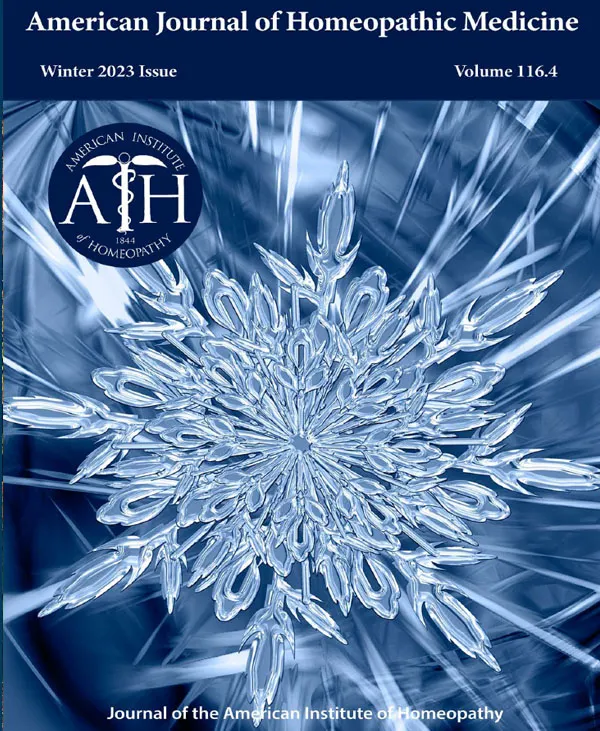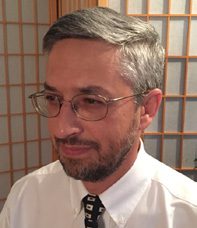
Editorial: The Homeopathic Approach
“The wisest among us appreciate the natural limits of our knowledge and have the mettle to preserve their naiveté. They understand how little all of us really know about anything. There is no such thing as conclusive, once-and-for-all knowledge. The wise do not confuse information or data, however prodigious or cleverly developed, with comprehensive knowledge or transcendent wisdom … Arrogance is the banal mask for cowardice ….”
– Lebell, Sharon. From the works of Epictetus. The Art of Living. Classical Manual on Virtue, Happiness, and Effectiveness. Harp Collins. 1995. P. 86.
“Although the chief features of a disease are present and similar in all persons attacked by the malady … we must confess that we are able to detect some sign or symptom, some all-pervading condition, some characteristic circumstance that gives that case its individuality, and causes it to differ, if ever so slightly, from all other cases.”- Henry N. Guernsey, MD. (1817-1885)
(Hutchinson, John. The Homoeopathic Recorder. Volume 58:6, Dec. 1942, p. 295.)
“The teaching of this paragraph (Organon, par. 6) is that the symptoms represent to the intelligent physician all there is to be known of the nature of a sickness, that these symptoms represent the state of disorder, that sickness is only a change of state and that all the physician has to do is correct the disordered state … we meditate upon the symptoms of the sick man as fully representing the nature of the disease after these have been carefully written out.”
-Kent, JT. Lectures on Homeopathic Philosophy. Examiner Printing House. Lancaster, PA. 1900. P. 61
Dear Reader,
Welcome to the Summer 2021 journal issue!
Perhaps the most important and “sticky” question for a homeopathic practitioner is the one dealing with “individualization.” It is clear that the polar opposite of that is the symptomatic prescribing so common in regular medicine. We do not approach the patient with the idea that if only we could give a general classification to the disease our therapeutic trouble is solved by finding a “diagnosis related” drug to fit the “general diagnostic category” of the patient.
What do we actually do then? We gingerly learn to make careful (de novo) observations in case taking with the aim of discriminating the presenting case in front of us from every other case that we have seen before. Though this may be a daunting and difficult task, somehow it must be accomplished if we are to succeed in the homeopathic approach. A simple illustration: Pierre Schmidt, MD, related a case of a woman who (as far as I remember reading) was complaining of sleeplessness and weeping from grief because her husband had left her. On further questioning (as well as an iridological examination), he elicited a confession from the patient that she does in fact feel more indignation and inner rage than “weeping grief” with her situation. Thus, a seemingly straightforward case of Ignatia amara was instead a case
of Staphysagria, which actually helped the patient. On the other hand, a patient with sighing and “silent grief” from whom we do elicit a revelation of childhood emotional trauma may very well need Ignatia amara as a remedy for a chronic “disorder,” whether our “official” diagnosis is depression or otherwise. The challenge for the homeopathic practitioner is to distinguish similar expressions of certain symptoms in each patient from each other, thus calling for a specific remedy, embracing each case as unique.
What, therefore, are the ideals for the healing artist? To approach each case with objectivity, humility, meditating on the characteristic features until an order becomes apparent in the “disorder of disease;” to empathize with the human being to be healed and perceive both intellectually and emotionally, illness’s key features; to do the same for the remedy to be studied; to learn from past masters and experience how to apply the remedy according to the susceptibility of the patient in the most efficacious manner; and above all, the willingness to give up any preconceived notions that do not move this healing art forward.
 Respectfully submitted,
Respectfully submitted,
Alex Bekker, MD
Editor in Chief, AJHM
President, AIH
About the AJHM
The American Journal of Homeopathic Medicine (AJHM) is a peer-reviewed scientific journal, specifically intended to meet the needs of physicians involved in the specialty of homeopathy. The editor invites original manuscripts, feature articles, research reports, 'Homeopathic Grand Rounds' cases studies, abbreviated case reports for 'Clinical Snapshots,' seminar reports, and position papers that focus on homeopathy, as well as book reviews and letters to the editor. Click below to subscribe to the Journal.
Latest Issue of the AJHM

AJHM – Winter 2023
Volume 116 Number 4
Table of Contents
- Editorial: In this Issue
- Homeopathic PuZZle?
- A Case of Erectile Dysfunction and Anejaculation in a Diabetic Patient
- Iron and Its Salts: Materia Medica and Illustration
- Suppression in the Organon
- An Appreciation of Jacques Jouanny’s Life and a Review of His Opus “The Essentials of Homeopathic Therapeutics”


